The project SistCAPS is helping communities in Nicaragua to digitally analyze household payment patterns for water use and has resulted in finding new ways to increase community savings for use in education and other high priority community projects.
Devised by ConnectED Fellows (Arsenio Yubank, Alba Luz Matinez and Byron Altamirano) and computer engineering students, from the Universidad Autónoma de Nicaragua (UNAN) Managua, Elvin Hurtado, Jairo Narvaez , and Eleskier Rivera, SistCAPS provides water management tools and resources through a computer management system and trains communities to collect household fees for water consumption and to efficiently track their water use.
Before SistCAPs, residents of Tortuga, Las Horquetas, and La China were having trouble tracking household water consumption and verifying who consistently paid for water and community utilities. All records were kept manually and there was no record of historical year-to-year water use. “It was exhausting because of the mental effort and time that it took. We used to have to add up all the numbers by hand and if something went wrong, we had to start counting all over again,” shares Arsenio Yubank, a Tortuga resident who reads the water meter. In addition, potential community savings were not being realized as many of the households receiving water were not being held accountable for paying water use fees.
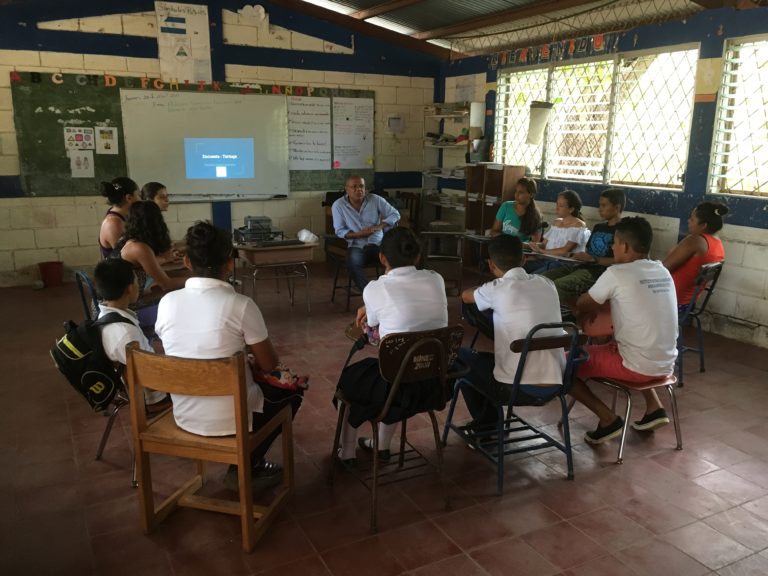
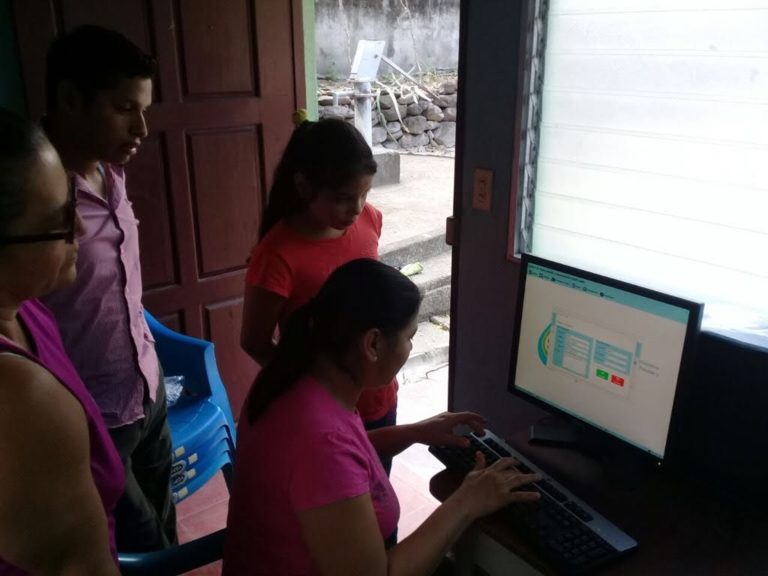
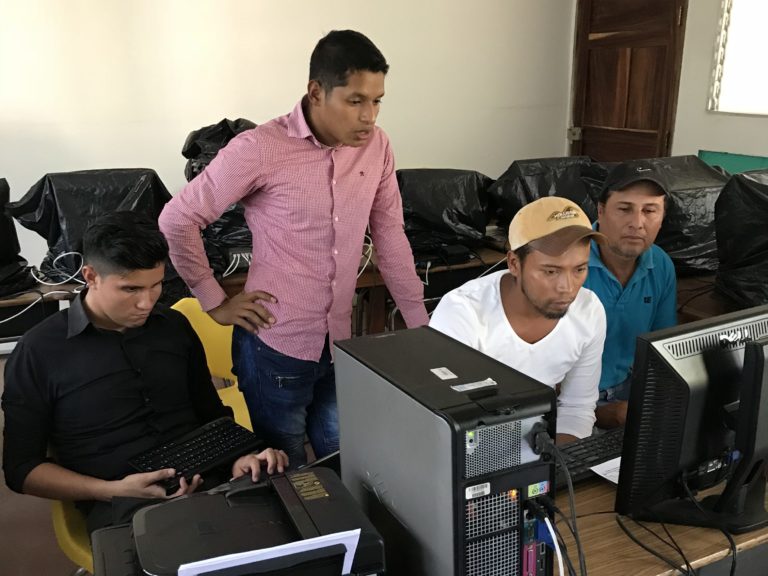
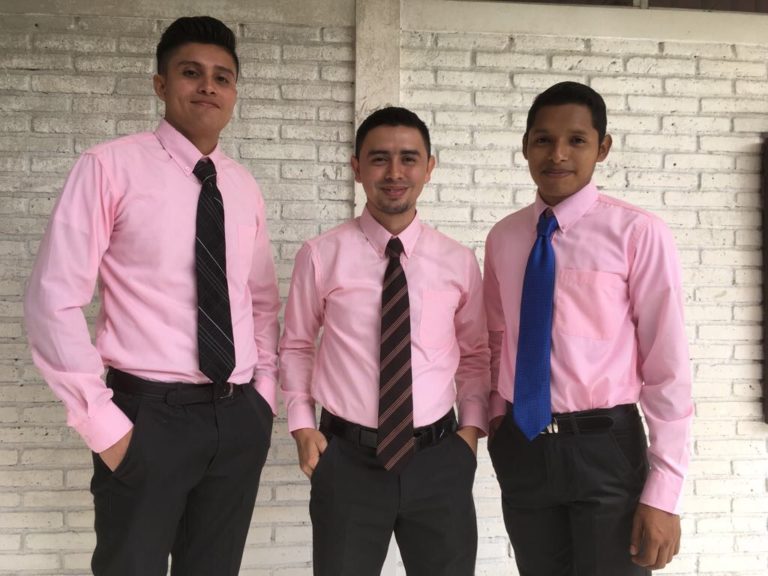
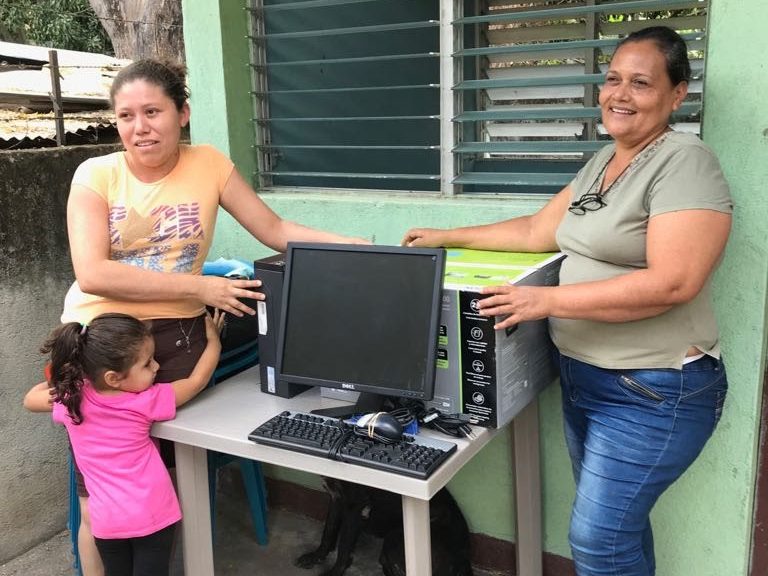
“We designed the computerized management system in the most flexible way…”
– Elvin, student
SistCAPS was launched in 2017 as a result of months of research and exchanges between various rural communities, Water and Sanitation Committees, UNAN students and local ConnectED Fellows. The system tracks and records household water usage; logs billings, historical water data, and community utility payments and community savings; and creates receipts for more organized water consumption monitoring. Since the project started, households paying for water services and the community’s collective savings have more than doubled, providing the communities with a surplus of collective savings that have since been used to improve education infrastructure and other high priority community projects. The project has also provided employment for local women who now administer the system. SistCAPS continues to be adaptively managed and is in the process of being shared with other communities in rural Nicaragua.
“Instead of just staying in Managua, as we usually do with our studies, we are coming to the communities to help them and bring innovative development through technological advances. We designed the computerized management system in the most flexible way so that it can be adapted and applied to other communities throughout Nicaragua,” shares Elvin, student UNAN, Managua.
